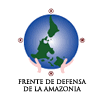Ecuador Court Invites Final Submissions on Damages in Chevron Environmental Lawsuit
Chevron's Hypocrisy On Display As Oil Giant Tries to Block Relief It Had Previously Requested

Amazon Defense Coalition
09 August 2010 - FOR IMMEDIATE RELEASE
Contact: Karen Hinton at +1.703.798.3109
Lago Agrio, Ecuador – In what should be viewed as a gain for Chevron, the Ecuadorian judge overseeing the multi-billion dollar environmental lawsuit against the oil giant has ordered both parties to submit independent damages assessments within six weeks, lawyers for the Amazonian communities announced today.
Chevron, however, is opposing the order that allows it to do its own damages assessment, said Jonathan Abady, who represents the Amazonian communities.
The court last week ordered the new damages assessments based on the existing evidence in the case, which includes more than 64,000 chemical sampling results documenting contamination at more than 100 former Chevron oil production sites. The reports are due in late September.
The latest order came in response to numerous complaints by Chevron over the report produced by Dr. Richard Cabrera in 2008. However, when the judge ordered the parties to submit their own assessments, Chevron immediately filed a motion to block the court from implementing its order. That motion was denied.
The order to conduct new assessments suggests that the judge in Ecuador is bending over backwards to accommodate Chevron's numerous requests for relief, but that Chevron is not really interested in participating in the trial, said Abady.
In light of its own soil sampling currently in evidence – which proves overwhelmingly that Chevron is liable for extensive and costly remediation – it appears the company's only strategy is to try to attack a single report prepared by Cabrera, said Abady.
"This is the ultimate test for Chevron to put up or shut up," Abady said. "Since Chevron seems to be so unhappy with the Cabrera report, it is incumbent on the company to do its own damages assessment now that the court is providing that opportunity. If they refuse to participate in the process, at this juncture under these circumstances, Chevron's obstructionism and hypocrisy will be on display for everyone to see."
"Chevron essentially asked the judge to issue an order blocking Chevron from receiving the very relief it had requested," said Abady. "That's because Chevron knows the extent of the pervasive damage it caused to the Ecuadorian rainforest. Any legitimate damages assessment will corroborate this essential fact."
"Now that Chevron has gotten what it had asked for, it claims it doesn't want it," added Abady. "Chevron has an opportunity to submit its own damages analysis from its own expert – and it doesn't want to do that?
"These facts speak for themselves. There is nothing new in this tactic. Chevron continues to try to block a judgment on the merits," he added.
The Amazonian communities in Ecuador have defended the Cabrera report as valid and technically sound, and have pointed out that the $27.3 billion damages number in his report is modest compared to clean up costs of other large disasters such at the BP spill in the Gulf of Mexico.
The judge issued his order on August 2. It asks the parties to assess the "economic cost" of the environmental damages documented by more than 100 expert reports and the tens of thousands of chemical sampling results now before the court.
It is unclear whether the court ultimately will rely on the Cabrera report or one of the numerous other expert reports currently in evidence when assessing liability and damages, said Ilann Maazel, another American lawyer who represents the plaintiffs.
Even though Cabrera had asked that both parties submit information he could use in his report, Chevron boycotted the process as part of a strategy to discredit the court, said Maazel.